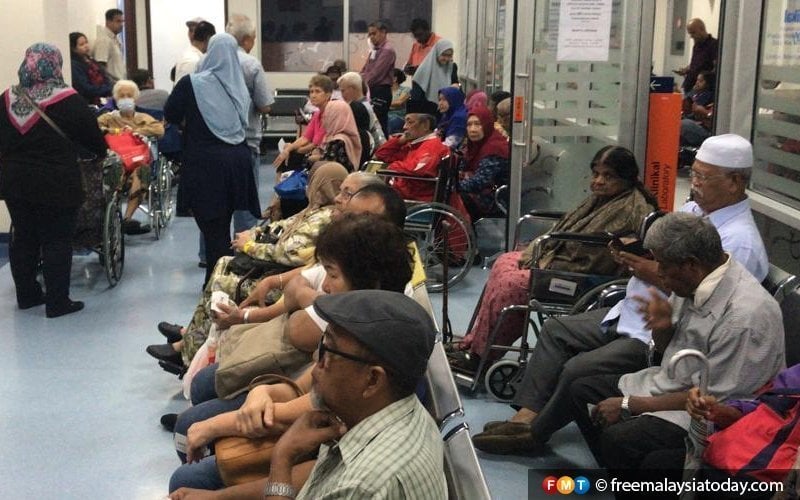
PETALING JAYA: The government should do away with the nominal fees at government health clinics and hospitals and implement a national health insurance scheme instead, says a think tank.
The Galen Centre for Health And Social Policy (Galen) said this would help the government resolve the issue of funding public healthcare for the long term.
Malaysians now only need to pay a nominal fee of RM1 for general outpatient consultation and RM5 for specialist consultation. Patients pay additional charges for medical prescriptions.
Galen CEO Azrul Mohd Khalib said any proposal to increase the fee structure, would be “pointless” as the amount of funds raised would still be insufficient to cover the true cost of healthcare.

He was asked to comment on a proposal by Bersatu’s Machang MP Wan Ahmad Fayhsal Wan Ahmad Kamal to increase the current fees at government health clinics and hospitals.
According to Azrul, a national health insurance scheme would help ensure public healthcare remains subsidised by the government and at no charge to the patient.
He pointed out that the current fee structure was introduced in the mid-80s, adding that Malaysians have since had more than 95% of their treatment cost subsidised by the public purse.
“These fees are obsolete and inadequate for meaningful cost recovery.
“The current fees also mislead the public regarding the true cost of healthcare,” he said, adding that it was no longer sustainable.
Azrul also said any move by the government to increase the fees would be unacceptable to the public and damaging politically.
“These fees now act as barriers to reform. That is why, instead of increasing the RM1 and RM5 fees, they should be removed altogether.
“A more sustainable and meaningful solution to healthcare financing should instead be proposed and supported, such as a national health insurance scheme,” he said.
Azrul pointed out that a national health insurance scheme would involve almost everyone contributing to a common pool of funds, which would then be used to fund healthcare.
He said this would be applicable to all workers and be based on a sliding scale linked to monthly income and age, and there would be a collective pooling of both funding and risk.
Azrul believed that such a scheme would not only help share the burden and responsibility of financing the healthcare system, it also had the potential to stabilise public subsidisation while maintaining access and quality to essential services.
Public health specialist Dr Tharani Loganathan of Universiti Malaya (UM) agreed with the suggestion of a national health insurance scheme. She said it should be considered instead of raising the fee structure.
She said with most Malaysians not having any health insurance and the cost of private healthcare being unaffordable for many, public healthcare is the “only option” for the middle class and poor.
“Instead of increasing fees, the government should increase its contribution to the health ministry and consider other forms of healthcare financing like health insurance,” Tharani added.
The country’s public healthcare system, which caters to about 65% of the population, is mainly financed by general revenue and taxes collected by the government. - FMT


No comments:
Post a Comment
Note: Only a member of this blog may post a comment.